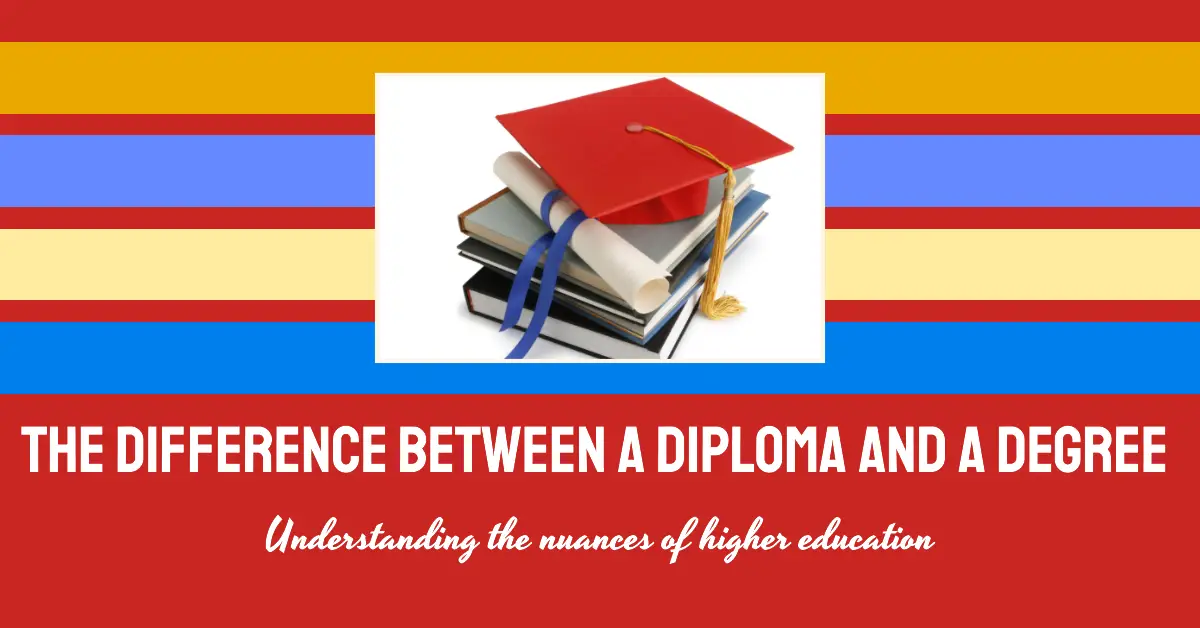When you’re about to take that big leap into the world of higher education, one of the first decisions you have to make is whether to go for a diploma or a degree. Yes, the difference between a diploma and a degree might seem insignificant at first, but they are worlds apart in many ways. This blog post will delve into the details and help you make an informed decision about your educational path.
What is a Diploma?
Overview
A diploma is usually a short-term educational program that provides practical knowledge and skills in a specific field. Diplomas are generally less academic and more vocational. They are designed to get you job-ready in a relatively short period.
Duration and Requirements
- Diplomas often take one to two years to complete.
- Usually require a high school diploma or equivalent for admission.
Scope
- Limited to specific vocational skills.
- Generally does not provide a broad educational background.
Career Opportunities
- Geared towards immediate employment.
- Typically prepares students for technical or skilled labor positions.
What is a Degree?
Overview
A degree is an academic credential awarded by a college or university after the successful completion of an undergraduate or postgraduate program. Degrees are generally more comprehensive and have a broader curriculum than diplomas.
Duration and Requirements
- Bachelor’s degrees usually take about four years to complete.
- Require a high school diploma and standardized test scores for admission.
Scope
- Provides a well-rounded education, including general studies.
- Allows for further academic progress, such as pursuing a master’s or a doctorate.
Career Opportunities
- Opens doors to higher-paying job opportunities.
- Can lead to managerial or other advanced career paths.
Key Differences
| Feature | Diploma | Degree |
|---|---|---|
| Duration | 1-2 years | 4+ years |
| Focus | Vocational | Academic |
| Admission Criteria | High school diploma | High school diploma + standardized tests |
| Career Opportunities | Entry-level positions | Higher-level positions |
| Further Education | Limited | Extensive options |
Why Choose One Over the Other
Time Commitment
If you’re looking to get into the workforce quickly, a diploma might be more your speed.
Financial Considerations
Diplomas are generally less expensive than degrees.
Career Goals
If you have managerial ambitions or specialized career plans, a degree is usually the better option.
Common Misconceptions
“A Diploma is Inferior to a Degree”
Not true. Both have their unique advantages and are suited for different career paths.
“You Can’t Pursue Further Education with a Diploma”
Some diploma courses can serve as stepping stones to advanced degrees, depending on the institution and the program.
Conclusion
Understanding the difference between a diploma and a degree is crucial for making the right educational choice. Whether you want quick employment or are looking for a longer academic route, knowing what each offers can set you on the path to success.
External Resources
So, the next time you find yourself caught in the diploma vs. degree dilemma, you’ll know exactly what to consider. Good luck!
